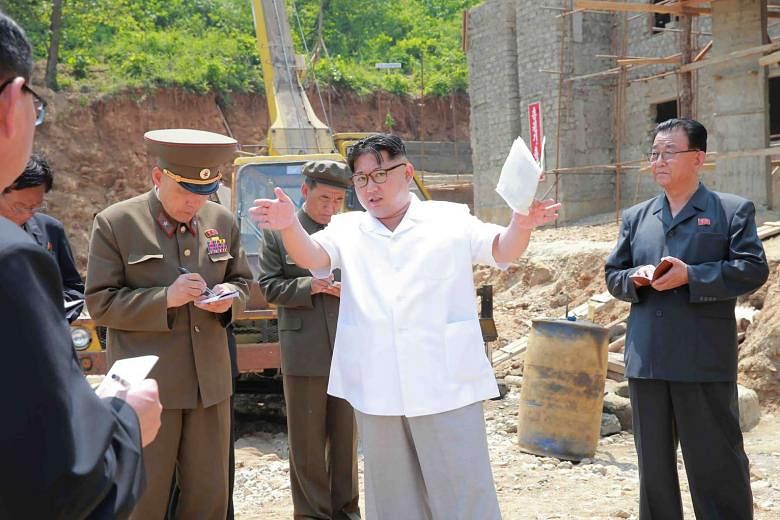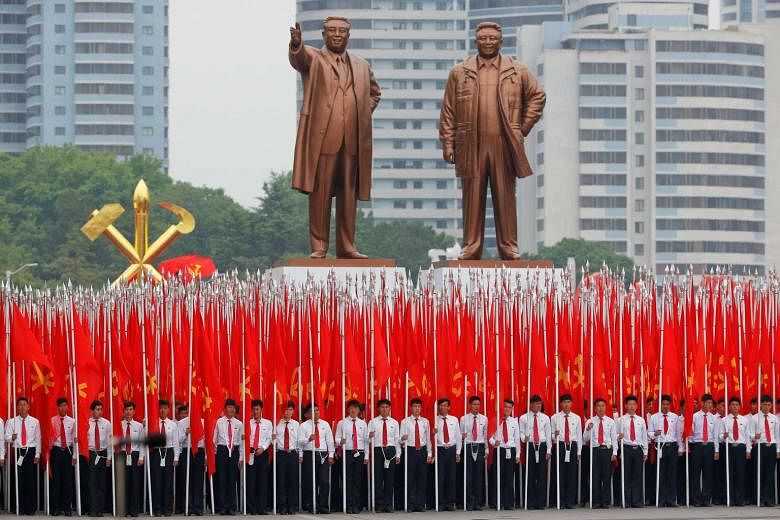SEOUL (AFP) - Tens of thousands of North Koreans, brandishing red flags and chanting slogans, paraded in Pyongyang to celebrate the start of the Stalinist regime's latest five-year economic plan, state media reported on Thursday (June 2).
The "mass mobilisation" took place on Wednesday in the sprawling Kim Il Sung square in the North Korean capital.
It marked the beginning of a 200-day campaign aimed at boosting productivity to jump-start the new economic plan, which was announced at a rare ruling party congress last month.
Video footage of Wednesday's event, broadcast by the North's Korean Central TV, showed the crowd shouting vows affirming their commitment to becoming "honourable victors in the 200-Day Battle".
During a speech delivered before the crowd, Kim Su-Gil, a top party official in charge of Pyongyang City, urged all government officials, party cadres and working people to "turn out as one in hearty response to the call of the party and wage a dynamic struggle" to deliver on their tasks.
"Let us all uphold high the revolutionary tasks presented at the Seventh Party Congress and charge forward for victory in the 200-Day Battle", a voiceover screamed on the footage.
The "battle" comes on the heels of a 70-day campaign intended to increase production, which ended just before the congress opened.
Few details have emerged of what will actually be required of individuals and institutions during the campaign, but state media reports have made a clear link with the plan announced by leader Kim Jong-Un during the congress.
It's the first plan of its kind for decades but, again, short on detail beyond general ambitions to boost production across all economic sectors, with a particular focus on energy output.
North Koreans are used to mandatory mass mobilisation campaigns, with participation rigorously monitored and used as a measurement of loyalty to the regime.
But observers said ordering two such lengthy campaigns back-to-back is relatively uncommon.
The past decade or so has seen the emergence of a closely monitored but tolerated grassroots capitalism in the North as the state distribution system collapsed in the famine years of the mid-to-late 1990s.
This unofficial economy is seen as playing an increasingly important role in propping up the regime and defectors now living in South Korea say mass mobilisation campaigns can disrupt its operations by eliminating the free time people need to tend to small-scale, private commerce.
Hit by its toughest UN sanctions to date following a fourth nuclear test in January, North Korea faces a major challenge in keeping its weak, highly vulnerable economy on track.


